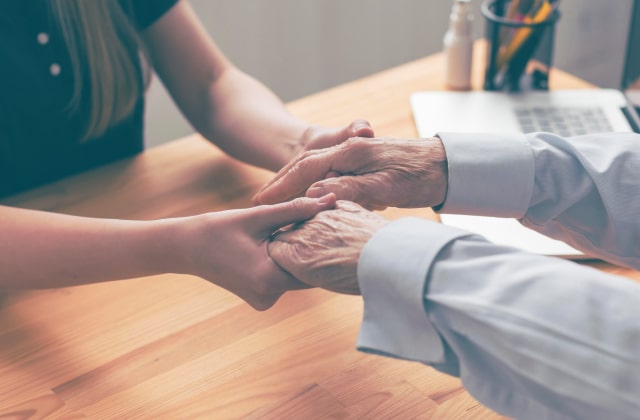The Importance of Self-Care for Caregivers
Caring for others is undoubtedly a noble and compassionate endeavor, but it can also be emotionally and physically taxing. Many caregivers, whether they’re looking after aging parents, children with special needs, or patients in healthcare settings, often forget to prioritize their own well-being.
Why is Self-Care Important for Mental Health?
Caregiver Burnout:
One of the most significant challenges faced by caregivers is the risk of caregiver burnout. Caregiver burnout refers to the physical, emotional, and mental exhaustion that caregivers can experience due to prolonged stress and the demands of caregiving responsibilities. Neglecting self-care can exacerbate this burnout, leading to serious mental health issues such as anxiety and depression.
Caregiver Stress:
Caregiver stress is another prevalent issue. It arises from the constant worry, responsibility, and the emotional toll of caring for someone in need. Chronic stress can take a toll on mental health, increasing the risk of conditions like insomnia and even post-traumatic stress disorder (PTSD) among caregivers. Self-care can be a buffer against the harmful effects of stress.

Why is Self-Care Important for Caregivers?
Unique Challenges Faced by Caregivers:
Caregivers often find themselves in a unique position where their own needs come second to the needs of their loved ones. This selflessness is admirable but can lead to physical and emotional exhaustion. Self-care for caregivers is essential because it helps them maintain the strength, resilience, and emotional stability required to provide the best care possible.
The Ripple Effect:
The well-being of caregivers directly impacts the quality of care they can provide. Neglecting self-care can lead to decreased patience, empathy, and overall effectiveness in caregiving. Thus, self-care is not just about the caregiver; it’s also about ensuring the best care possible for the recipient.
Here are four strategies for caregivers to prioritize self-care:
Cultivate Self-Compassion: Caregivers often place high expectations on themselves. It is essential to nurture self-compassion and recognize that it’s acceptable to take breaks, seek assistance, or even make mistakes. Practicing self-compassion can effectively reduce caregiver stress and enhance overall well-being.
Establish Firm Boundaries: Create distinct boundaries between caregiving responsibilities and personal time. Communicate these boundaries with family members, friends, and healthcare professionals involved in caregiving. Maintaining this separation is crucial for safeguarding your mental health.
Seek Out Support: Reach out to support groups, therapists, or counselors who specialize in caregiver mindfulness and well-being. Engaging with others who share similar experiences can be profoundly affirming and comforting.
Embrace Consistent Self-Care Practices: Dedicate time to self-care activities that rejuvenate your mental and emotional state. This might involve meditation, yoga, journaling, exercise, pursuing hobbies, or simply taking moments to relax and unwind. These routines play a pivotal role in diminishing caregiver stress and averting burnout.
Self-care for caregivers is not a luxury; it’s a necessity. Recognizing the importance of self-care for mental health, understanding the unique challenges faced by caregivers, and implementing practical strategies to prioritize self-care can make a profound difference in both the caregiver’s well-being and the quality of care they provide. Caregivers should embrace self-compassion, set boundaries, seek support, and engage in regular self-care practices to ensure they can continue their vital work with love, patience, and resilience. Remember, by taking care of yourself, you are better equipped to take care of others.
Our agency Angel Care Inc. of home care nursing has huge range of qualified specialists and we give support and assistance in all cases of health problem. If you need any consultation, please contact to us: 917-507-7500 or by e-mail at [email protected]

In today's fast-paced world, effective communication is essential for personal and professional success. For adults facing speech challenges, speech therapy at home offers a convenient and accessible solution to improve their communication skills. What is speech therapy for adults? Speech therapy for adults is a specialized field aimed at addressing various speech and language challenges faced by individuals who have reached adulthood. Unlike the common perception that speech therapy primarily serves children, it plays an equally vital role in the lives of grown-ups. Whether it's improving articulation, managing speech disorders, enhancing communication skills, or overcoming issues like stuttering, speech therapy for adults offers tailored solutions. These therapies are designed to empower adults with the tools and techniques needed to navigate personal and professional communication effectively. It encompasses a range of exercises and strategies that target specific speech and language issues, ultimately fostering clearer, more confident expression. The goal is to not only enhance speech but also to improve overall quality of life, boosting self-esteem and facilitating meaningful interactions. Importance of Practicing Speech Therapy Exercises Speech therapy exercises for adults play a crucial role in helping individuals overcome speech-related challenges and enhance their overall quality of life. Whether it's addressing issues like stuttering, recovering from a stroke, or dealing with other speech disorders, these exercises provide a structured and effective approach to improving speech and communication skills. Speech Therapy Exercises for Stuttering Adults Stuttering is a speech disorder that can significantly impact an individual's ability to communicate fluently. While it often begins in childhood, stuttering can persist into adulthood, affecting various aspects of one's personal and professional life. Speech therapy for adults who stutter is a tailored approach designed to alleviate speech disruptions and enhance communication confidence. The following are some key speech therapy exercises for stuttering adults: Breathing Exercises: Stuttering is often associated with irregular breathing patterns. Speech therapists teach adults to regulate their breath, promoting smoother speech. Techniques such as diaphragmatic breathing and slow exhalation are commonly used. Fluency Shaping Techniques: These techniques aim to change the way speech sounds are produced. They may include prolonged speech, gentle onset (gradual initiation of sound), and easy onset (starting speech sounds softly). Relaxation Exercises: Stress and tension can exacerbate stuttering. Learning relaxation techniques, such as progressive muscle relaxation or mindfulness, can help adults manage anxiety and improve speech fluency. Speech Therapy Exercises for Adults After Stroke A stroke can result in various communication challenges, including aphasia (difficulty understanding or producing language) and dysarthria (difficulty with muscle control for speech). Skilled sersices and Speech therapy exercises are an essential component of stroke rehabilitation to help adults regain their speech and language abilities. Here are some speech therapy exercises for adults after a stroke: Language and Cognitive Exercises: These exercises focus on rebuilding language skills, improving comprehension, and enhancing memory. Activities may include word retrieval exercises, reading comprehension tasks, and memory games. Articulation and Breath Control: For adults with dysarthria, exercises to improve articulation and breath control are essential. Speech therapists may incorporate activities like tongue twisters, lip exercises, and diaphragmatic breathing techniques. Swallowing Rehabilitation: Stroke survivors may experience dysphagia, difficulty swallowing. Speech therapists work on strengthening the muscles involved in swallowing through specific exercises and dietary modifications. In the journey towards improved speech and communication, remember that you don't have to face it alone. Angel Care, Inc. is here to help. Our team of dedicated specialists is ready to assist you in overcoming speech challenges and achieving your communication goals. For additional information or to schedule a consultation, please don't hesitate to contact us at 917-507-7500 or reach out via email at [email protected]. Your path to clearer and more confident communication starts here.

What is a wound care specialist? Wound nurses, often referred to as wound care nurses or wound care specialists, play a pivotal role in the early identification, assessment, and management of wounds. Armed with a deep understanding of wound physiology, infection control, and patient education, these skilled professionals offer invaluable support to patients across the healthcare continuum. Why Involve A Wound Specialist? Enlisting the expertise of a wound care specialist holds paramount importance when dealing with complex and challenging wounds. While general healthcare practitioners possess a broad understanding of wound care, wound specialists offer a depth of knowledge and experience that can significantly impact treatment outcomes. Their specialized training enables them to identify underlying factors that may impede healing, tailor interventions to the specific needs of each patient, and employ advanced techniques to promote optimal wound healing. Moreover, wound specialists collaborate seamlessly with other healthcare professionals, ensuring a comprehensive and multidisciplinary approach to patient care. Home Wound Care: Empowering Patients in Healing with the Expertise of a Wound Care Consultant In addition to clinical settings, wound care consultants and specialists play a pivotal role in empowering patients and caregivers to effectively manage wounds within the comfort of their own homes. This is particularly relevant for chronic wounds that require continuous attention and care. Wound care consultants provide invaluable education on wound assessment, proper dressing changes, infection prevention, and identifying early signs of complications. By equipping patients with the knowledge and skills needed for home wound care, these experts contribute to improved patient compliance, a reduction in hospital visits, and an overall enhancement of quality of life. This patient-centered approach not only accelerates the healing process but also fosters a sense of autonomy and control over one's own journey to recovery. Getting Help from Wound Care Companies: Empowering Your Healing Journey When it comes to effective wound management, seeking assistance from specialized wound care companies can be a transformative step towards better health and well-being. These companies bring together a dedicated team of wound care experts, including wound care consultants and specialist physicians, who are equipped to address a diverse range of wound-related challenges. If you find yourself in need of professional support for your healthcare journey, consider reaching out to our esteemed home care agency, Angel Care Inc., located in the heart of New York. How to Reach Us: If you're seeking expert recommendations and qualified assistance for your wound care needs, don't hesitate to contact us at Angel Care Inc. You can connect with us through the following channels: Phone: Reach out to us at 917-507-7500. Our dedicated team is available to answer your questions and provide the support you need. E-mail: You can also reach us via e-mail at [email protected]. Feel free to share your concerns and inquiries, and our responsive team will get back to you promptly.



